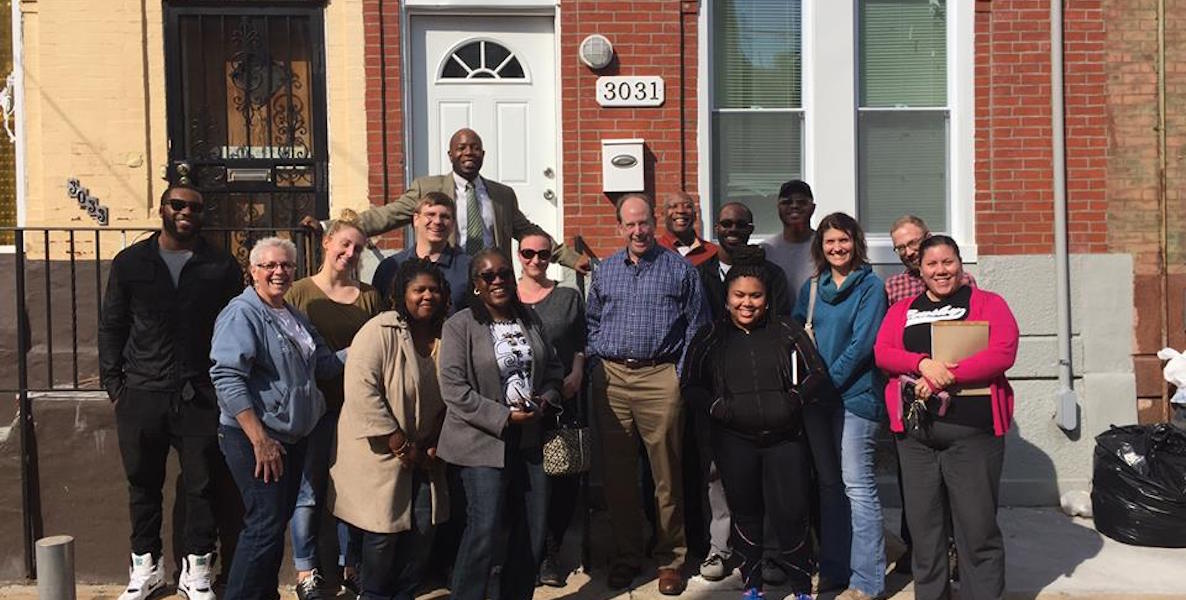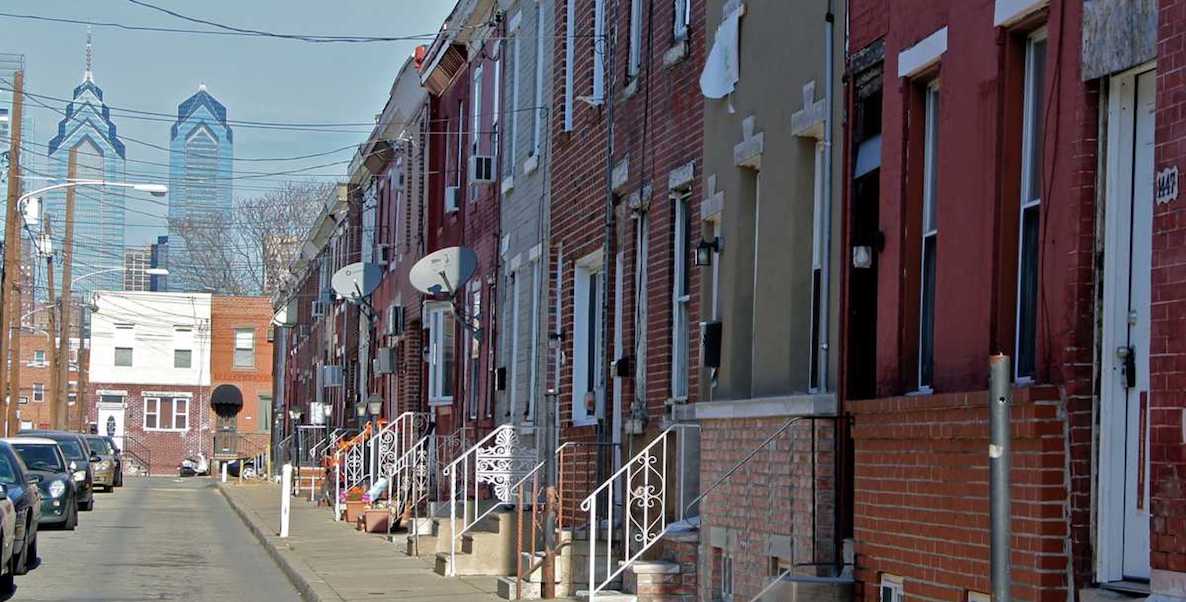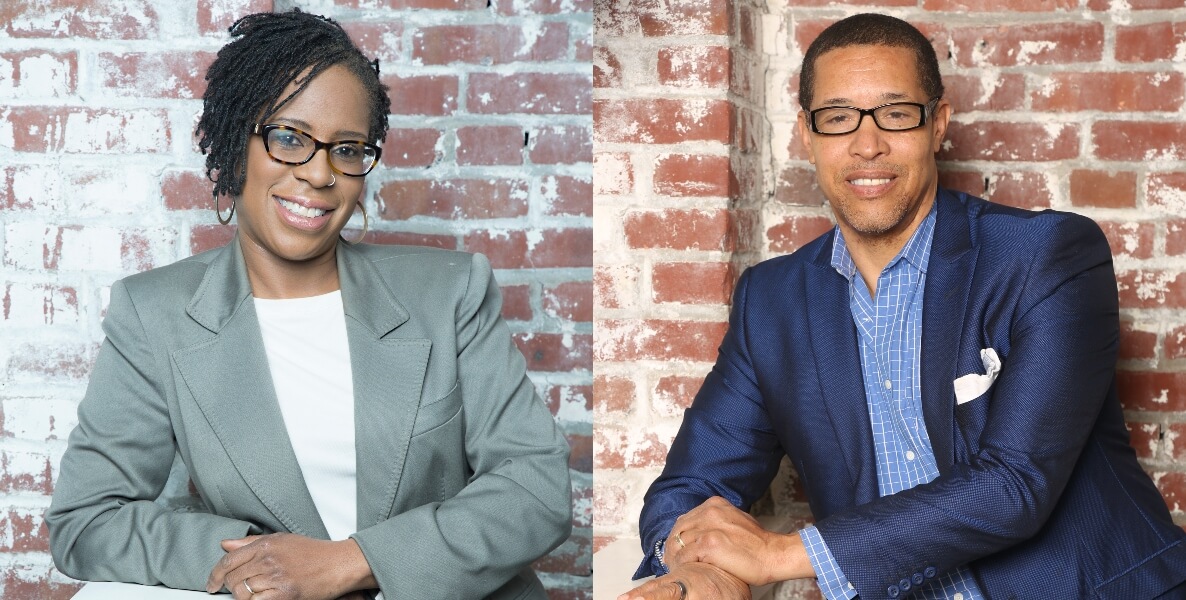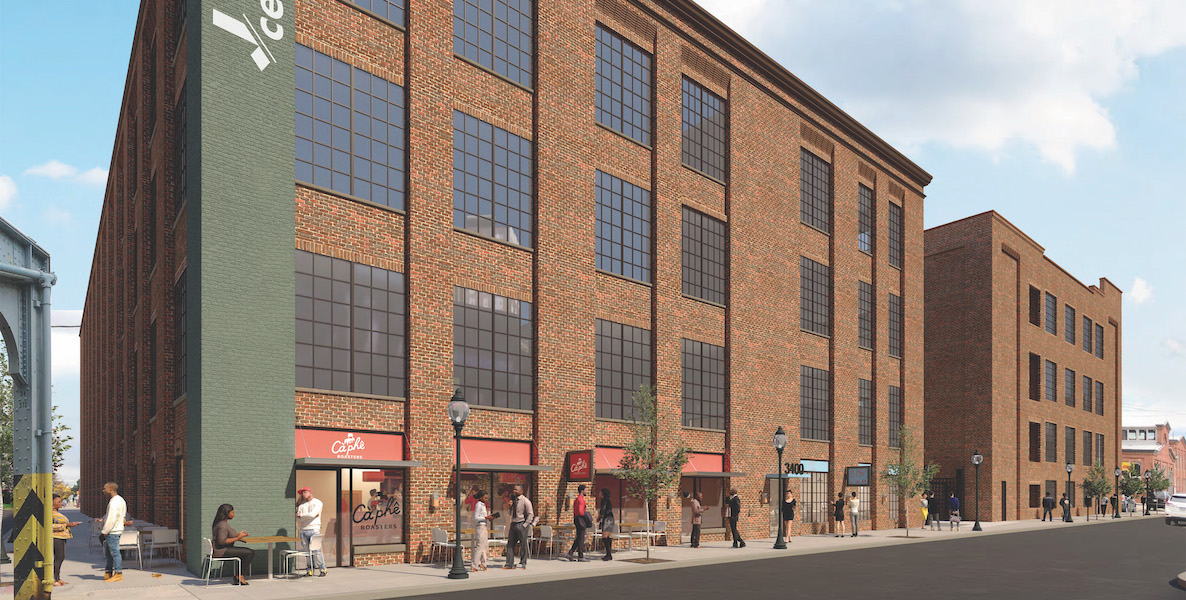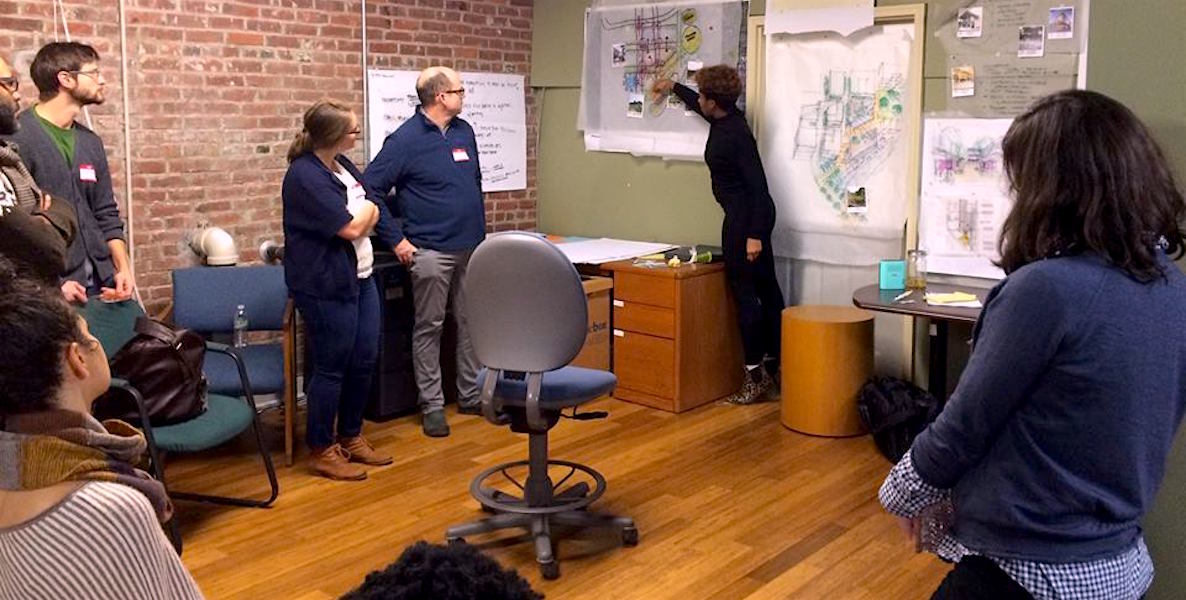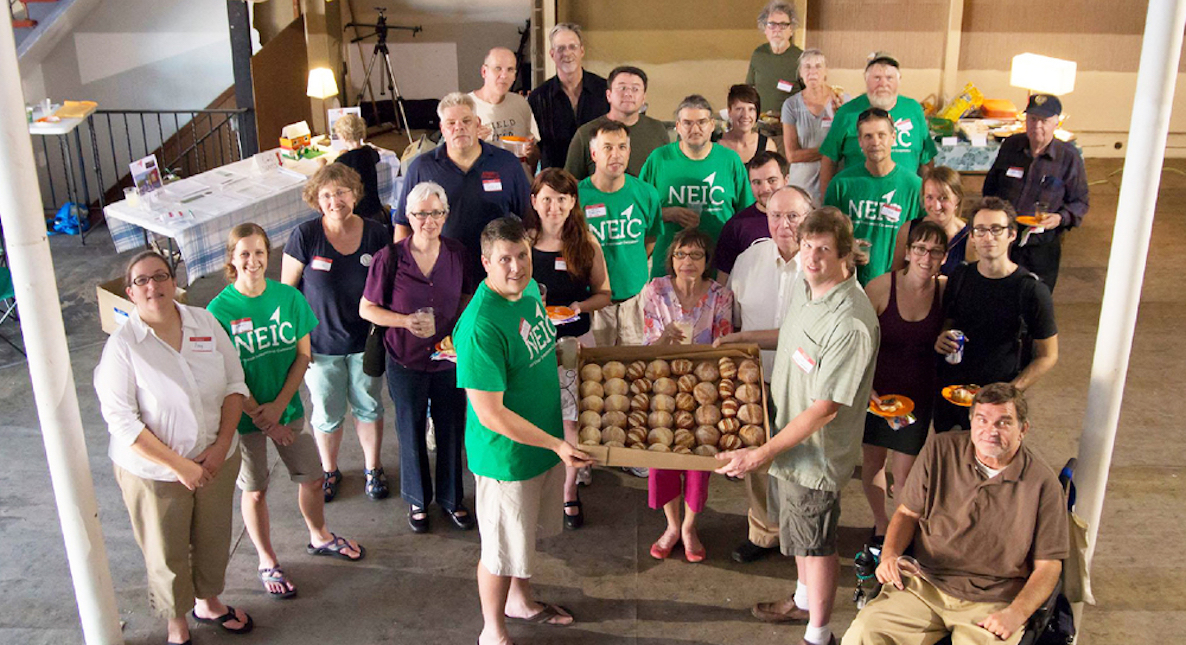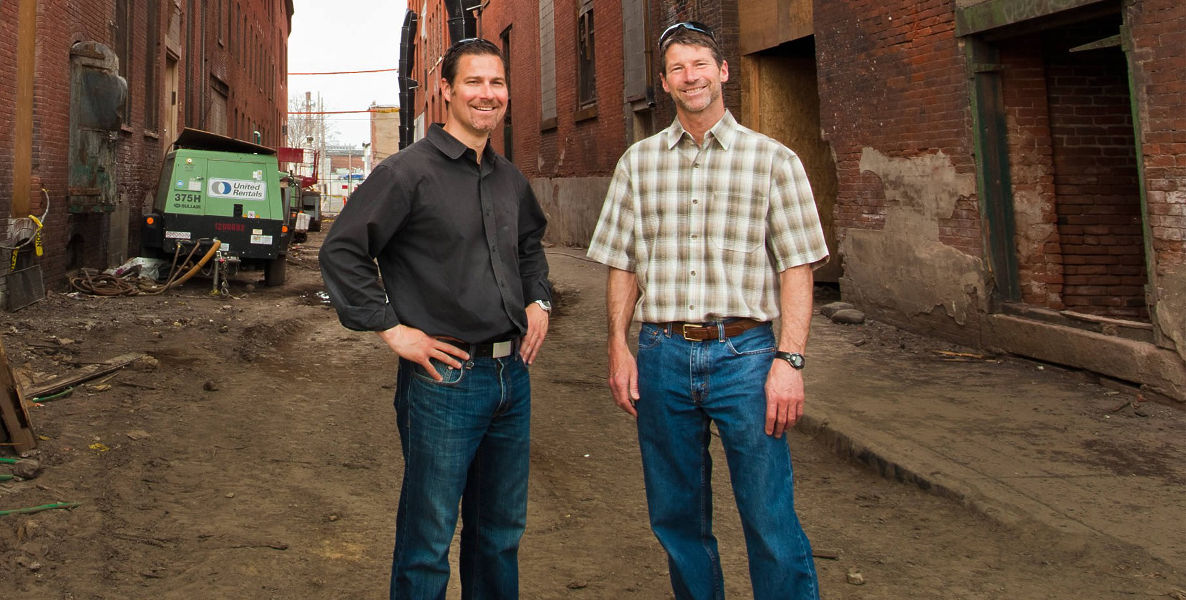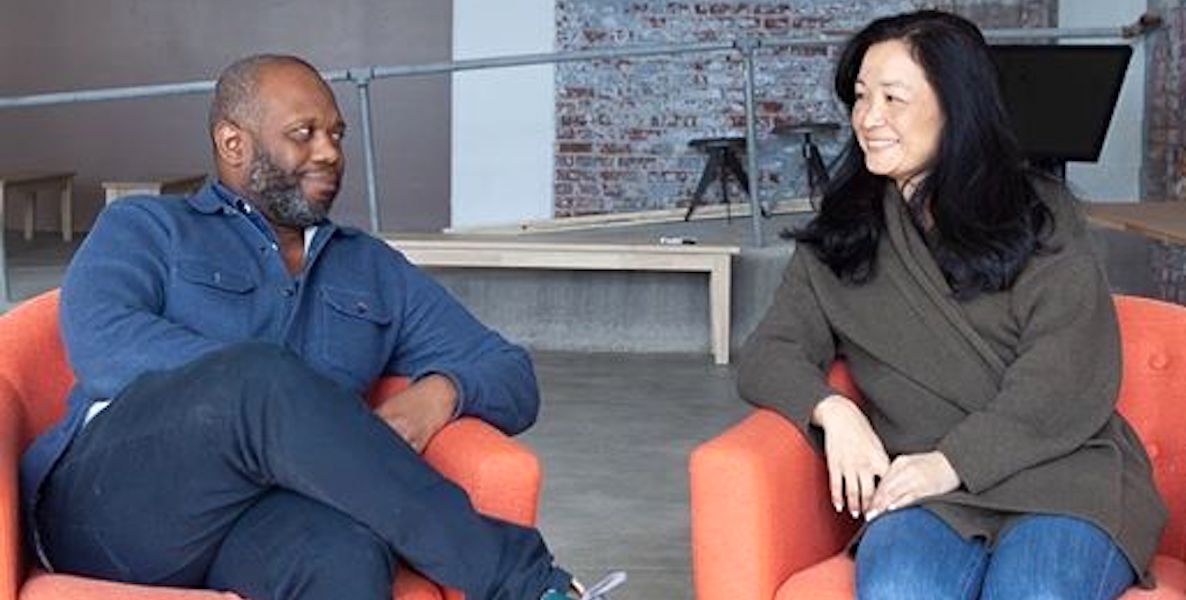Ernst Valery didn’t have any real connection to Philly when he decided to move here 20 years ago. He was a New Yorker, having lived there ever since he moved from Haiti at age 8. He’d gone to Cornell University (where he studied urban planning and international relations, then earned a master’s in public administration and policy analysis), then he’d gone to Columbia University (where he got another masters in real estate development). He could have easily stayed in that city.
Instead, the fresh-faced young twenty-something came here, got a place at 23rd and Fitzwater streets, and launched the real estate development business EVI, that would one day help shape not just parts of Philly, but cities around the country.
There was a lot about Philadelphia that appealed to him, he says. He liked the architecture. Loved the housing stock, and the geography: It was so close to New York, so close to the banking capital of Wilmington.
“Development needs to happen in a way that the people around the table who are developing communities look like the communities they’re serving,” Valery says. This, he is convinced, is the way to greater cities, to the goal of “development without displacement.”
Also? “The neighborhoods, the communities in Philly are special, really strong,” Valery says. And he had always been someone who believed in the power of communities and community partnerships in development, in taking into account the diverse needs and lives of people who lived in the area.
He had never understood why more city planners weren’t developers, actually: “Because planners get people.” So often, he says, you see developers who “don’t get what’s happening, and they fall short of helping urban communities advance.”
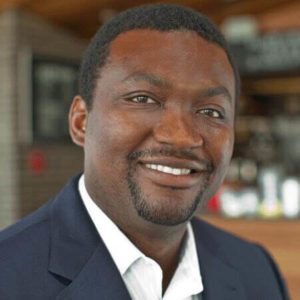
It’s this mission—helping urban communities advance, focused on equity and affordable housing—that has been the guiding force behind Valery’s entire career. This was true from his early days in Philly when he first launched EVI, to the eventual merger that created bigtime Baltimore-based development/investment firm SAA|EVI, where he is currently majority owner and president. (SAA|EVI’s specialty: achieving “the balance between solid financial returns and inclusive community and economic development.”)
This has also been also true in his work with MIT’s CoLab think tank, his role with the city of Baltimore in housing and neighborhood development, and in his latest endeavor, the brand new $5 million Aequo Fund.
What sets Aequo apart, however, is that even more than investing in the developments, this project really exists to invest in the developers. Specifically? Black, brown, women and immigrant developers who haven’t enjoyed equal (or any) access to the capital and networks that fuel development.
The Aequo plan is straightforward: To connect with promising or up-and-coming developers, ideally people who have masters degrees in real estate, and people with their own development dreams involving affordable housing and stronger communities. Aequo will partner with them in buying, rehabbing and selling homes. Valery says the hope is that over three years, they’ll have a minimum of 50 houses in the five cities Aequo is active—Philadelphia, Baltimore, Buffalo, Portland and Richmond.
![]() These developers might come from past projects Valery has worked on, through meetings via the Aequo application process, or though the schools the fund is working with: Temple, Cornell, Columbia. And what the Aequo partnership means to individual developers, Valery says, is the opportunity to really build a track record and momentum in the field, not to mention a coalition of other developers with whom to exchange ideas. And, of course, the capital to get it all rolling.
These developers might come from past projects Valery has worked on, through meetings via the Aequo application process, or though the schools the fund is working with: Temple, Cornell, Columbia. And what the Aequo partnership means to individual developers, Valery says, is the opportunity to really build a track record and momentum in the field, not to mention a coalition of other developers with whom to exchange ideas. And, of course, the capital to get it all rolling.
For too long, Valery says, the financial system has kept too many people out of the industry, which has stymied careers and economic development and, yes, the smart and equitable advancement of communities.
Aequo—Latin for “to be equal”—aims to change that.
Bringing more people to the table
It’s obviously no secret that there’s a diversity problem in real estate development. Also, in investment, ownership, and financing.
Still, Valery was a bit taken aback last year when he went to speak at Columbia and a professor told him that in 2019, there was not a single Black graduate from the school’s real estate master’s program. “They also told me that they didn’t see entrepreneurship coming out of Columbia—I was one of the last real estate entrepreneurs out of that program,” Valery says. “And I graduated in 2004.”
“Someone has to take a stand to say, ‘Enough is enough.’ This country is better when we’re all at a level playing field,” Valery says.
He was also struck by the number of women who have graduated from his own alma maters with real estate degrees, but who are not developers in their own right. “They work for someone else,” he says. “Guys who didn’t do as well as them are the CEOs and using them to advance their careers. It’s a psychological game being played that makes people feel less than, makes people feel like the world wasn’t built for all of us.”
![]() But, Valery says, “the world was built for all of us.” It’s just that the world of finance hasn’t gotten that message yet. In fact, maybe you’ve seen Valery’s name in the papers recently? In December he filed a class action lawsuit against Wells Fargo Bank, alleging racial discrimination after an employee refused to deposit a $3 million state-issued check for him. Valery, who’s done significant business with the bank over many years, says it was not only “humiliating” but also, as the complaint alleges, clearly related to the fact that he was a Black man depositing a large check in a bank located in a low-income neighborhood.
But, Valery says, “the world was built for all of us.” It’s just that the world of finance hasn’t gotten that message yet. In fact, maybe you’ve seen Valery’s name in the papers recently? In December he filed a class action lawsuit against Wells Fargo Bank, alleging racial discrimination after an employee refused to deposit a $3 million state-issued check for him. Valery, who’s done significant business with the bank over many years, says it was not only “humiliating” but also, as the complaint alleges, clearly related to the fact that he was a Black man depositing a large check in a bank located in a low-income neighborhood.
“Someone has to take a stand to say, ‘Enough is enough,’” he told The Baltimore Sun. “This country is better when we’re all at a level playing field. We’re so good at getting the PR machine going. But we have to look under the hood and look at the processes.”
The financing inequity problem becomes a development problem which becomes a neighborhood problem, because, as Valery says, “development needs to happen in a way that the people around the table who are developing communities look like the communities they’re serving.” This, he is convinced, is the way to greater cities, to the goal of “development without displacement.
But there again, he says, “women have been kept away from that table. Minorities, immigrants, they’ve all been kept from the table.” As if privileged white men are the only ones worthy of investments, he says. As if they are the only ones who can innovate or solve society’s problems, he says. Don’t get him wrong: “I have nothing against anyone. I just want us to bring more people to the table, and more voices. That’s where you get the best innovation.”
Hence, Aequo Fund, which debuted in December with the express purpose of investing money (and networks and expertise) in underrepresented, “underestimated” and underfunded voices. Two months in, Aequo is already working with four Philadelphia developers.
Valery isn’t the only visionary in this vein in Philly. There’s Jumpstart Germantown, for instance, which has since 2015 been training and helping neighborhood residents on how to develop their own communities; there’s also The Collective, a newer coalition of developers, planners and investors (including social entrepreneur Tayyib Smith, longtime civic and education player Sandra Dungee Glenn, and Steven L. Sanders of Beltraith Capital) that aims to support impactful development and grow wealth inside marginalized communities and neighborhoods.
In fact, one of the things that’s exciting about Aequo Fund, offers Andy Rachlin, is that it feels like a big part of a growing movement to invest in underfunded communities and community builders, to create opportunities to build new ecosystems, to build wealth.
“I have nothing against anyone,” Valery says. “I just want us to bring more people to the table, and more voices. That’s where you get the best innovation.”
Rachlin is a managing director at The Reinvestment Fund, one of Aequo’s lending partners. They’ve happily financed a number of Valery’s projects over the years—“and he always delivers.” Though what really stands out to Rachlin about this project is that Valery “has an incredibly intelligent and novel way for identifying the inflection points in his life which allowed him to be successful,” he says. “And now he’s leveraging his position to make sure other people have those inflection points, too.”
A pipeline to capital
Monica Miraglilo didn’t take a traditional path to a home-building career. A former model with a gift for design and an entrepreneurial spirit, her first toe-dip into the real estate world was out of necessity: She’d bought her first home, it needed work, and she didn’t have the money to hire people. “I had to be frugal, but I was creative,” she says. “I’d go to Home Depot and ask the guys how to lay tile, or do other things.” And she did lay tile, and hang cabinets and knock down walls … and more.
“Eventually,” she says, “the house became my own sort of showpiece.” Friends started asking her to do their homes, and from there, a design career took off.
The Cliff’s Notes version of the next 20 or so years saw Miraglilo’s career growing in a fairly remarkable fashion, working with big developers and builders on everything from big rehabs of old homes to new Main Line manses and entire apartment buildings. In 2017, she and her husband, Michael, decided to go into business for themselves, and Miraglilo Properties, specializing in Philly rehabs, was born.
Even before Aequo, she says, the Miraglilos had worked with Valery on a handful of projects around Philly. They’d met through a realtor and shared a vision and sensibility. When Valery approached them with the Aequo Fund, she says, they were excited—and not just for the chance to develop new properties in different areas (although they are doing that; they just purchased a place in Brewerytown as an Aequo project, she says). Miraglilo is also in the process of launching Girlbuild, an “empowerment initiative” —and Aequo will play a role in that, too.
RELATED VIDEO CONTENT
The idea for Girlbuild began as a “workable” clothing line for women, Miraglilo says, because there were no options for women in the industry. “Everything we’re presented with is unattractive and boxy!”
And so she launched the Girlbuild brand as a small fashion line in October with overalls and hazard pants and jumpsuits and T-shirts—and began to see ![]() questions pop up in her social media. It wasn’t just about the clothes: People wanted to know how she got to where was; how she did things. And so the concept of Girlbuild morphed into a training program that she’s launching this month, a curriculum of workshops on the business of developing, the ins and outs of developing and design, finding an overall mission, and “all the tools women need to get started in the business.”
questions pop up in her social media. It wasn’t just about the clothes: People wanted to know how she got to where was; how she did things. And so the concept of Girlbuild morphed into a training program that she’s launching this month, a curriculum of workshops on the business of developing, the ins and outs of developing and design, finding an overall mission, and “all the tools women need to get started in the business.”
“What Monica is doing, encouraging more young women to get into the industry—I just think that’s incredibly necessary,” Valery says. And so not only has EVI been an investor in Girlbuild, he says, but the students who complete the Girlbuild curriculum will have an opportunity to interview and apply for equity through Aequo—one more potential pipeline to capital.
It all gets back to the point of the fund, Valery says, which is to try to start “eradicating the sexism and racism and xenophobia in the financial system. Because we can’t grow and thrive as a society if we keep down this road.”
Header photo: Monica Miraglilo, developer with Aequo and founder of Girlbuild


